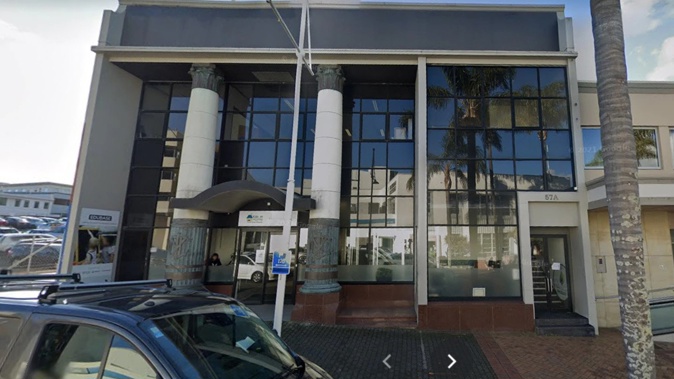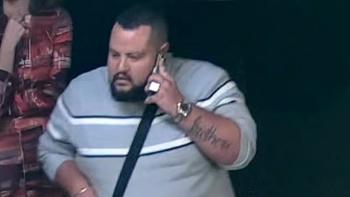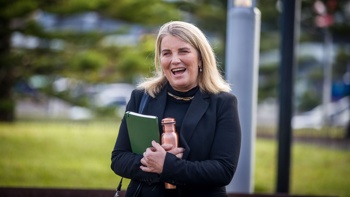

One of the country's largest licensed home-based childcare providers has failed in its bid to be paid an extra $316,000 for looking after the children of essential workers during the country's original Covid-19 lockdown.
Despite ultimately going on to make its most profitable April in two years and claiming more than $200,000 in Covid-19 wage subsidies, Tauranga's Edubase Limited launched legal action in the Wellington High Court against the Ministry of Education.
The court case, heard last month, was based around a dispute over the rate the company felt it should have been paid for a contract it picked up to help care for the children of essential workers in April 2020.
The company believed it was going to be paid $30 per hour per child while the actual amount it was paid was a flat rate of $25 per hour.
In throwing out the case in his reserved decision released on Thursday, Justice Peter Churchman said Edubase should have realised the pay rate it was expecting wasn't a correct interpretation as it would have resulted in more than tripling the Ministry's normal pay rate.
"In an industry where educators often actually receive less than the minimum wage, such an interpretation would produce a startling result which, in itself, should have caused [Edubase's chief executive David Best] to wonder whether his interpretation was correct."
Edubase, which runs Homegrown Kids and Kids at Home, specialises in early childhood education and is the second-largest licensed provider of home-based childcare in the country.
It boasts 120 independent contractor educators, who are based around the country, and had about 600 children in its care in March 2020.
On March 2 of that year, Edubase received its first of three bulk in-advance payments for the year totalling $1,060,791.24 for services through to May.
The country's lockdown was announced about three weeks later, closing all businesses apart from essential services, the employees of whom still needed childcare.
As a result Edubase, along with PORSE and Barnardos, were signed up to look after these children.
Several witnesses gave evidence during the hearing, but communications between Best and Ministry of Education employee Colin Meehan were at the centre of the case as they revealed where possible confusion erupted.
There was a telephone call, and two emails, with one of the emails quoting Meehan as saying, "Prime Minister has announced it, so we are all go".
"What we are thinking [subject to change, and welcome any thoughts/feedback you have].
"The figure we are working with is $30 per hour – at this point this is subject to Treasury approval."
Best took the email to mean that while the payment was still subject to Treasury approval, the Ministry would still be paying $30 "per hour per child". It is common for ECE subsidies to be paid "per hour per child".
But when a contract for childcare services was passed by Cabinet – on April 1 – the hourly rate was confirmed as "$25 per hour".
Best said given the approach from Meehan, they entered into contracts with carers prior to April 1 based on the $30 per hour rate, with carers receiving $12.50 per hour per child.
Edubase provided childcare between March 25, 2020, and April 27, 2020.
Best said the company incurred liability to carers for payments they would provide and despite contacting Meehan, who couldn't answer his questions, he encouraged them to "keep on working to meet the needs of essential workers while the Government was still catching up".
As well as paying $25 per hour, the ministry also said it would pay Edubase a flat administration fee of $60 plus GST per carer.
Further emails were exchanged between the pair for more than a week, with Best objecting to the contract and a refusal to accept the $60 administration fee as its recompense.
Edubase was paid a total of $250,674.39, excl GST, for 18,101 childcare hours and ended its contract once the country moved to alert level 3 given its concerns about payment.
When questioned in court why it didn't stop its contract, Best said Edubase "had no option" that it had already signed contracts with educators, and the ministry had announced its involvement.
Under cross-examination, Best also acknowledged the level of service it was providing at the time was "childminding or babysitting services rather than educational services".
Meehan explained the scheme wasn't intended to be a moneymaker, given that its normal ECE funding had already been paid and the ministry wasn't asking for it back.
The scheme was also exempt from the Covid-19 wage subsidy, for which Edubase would end up being given $215,088.
In its evidence, the ministry denied any misrepresentation and likened its early contract discussions akin to two commercial parties in a negotiation.
The ministry emphasised to Edubase that it was still subject to approval from Treasury and ultimately Cabinet.
It submitted the alleged representations fell far short of being "unequivocal" and its language was clear.
It also went on to enter into agreements with 30 other childcare providers, none of whom took exception to the contract.
Justice Churchman found Edubase relied on the $30 rate "to their detriment".
"There are a number of factors which go to the question of whether it was reasonable for Mr Best to have assumed that [per hour per child] was being offered in this case rather than a straight payment of $30 per hour."
Normal ECE subsidies ranged from $3.94 to $9.59 per child per hour.
"If Mr Best's interpretation was correct, then the Government would have been offering to pay $120 per hour plus GST in respect of a carer who provided care for the maximum of four children.
"When the overall context is looked at, it cannot be said that the ministry did not pay a reasonable price for the childcare services that Edubase agreed to provide."
- by Belinda Feek, Open Justice
Take your Radio, Podcasts and Music with you









